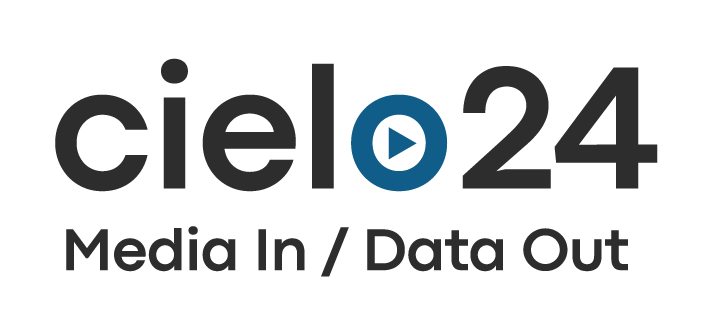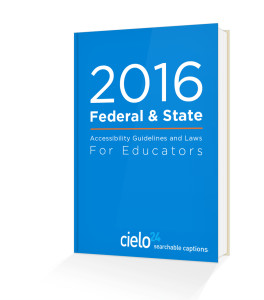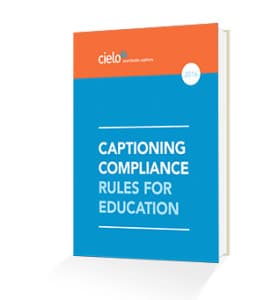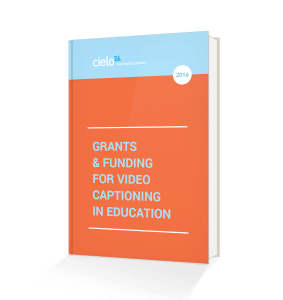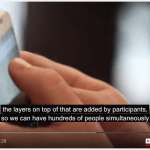Creating and using Amazon video captioning is a technical process that might be challenging for…
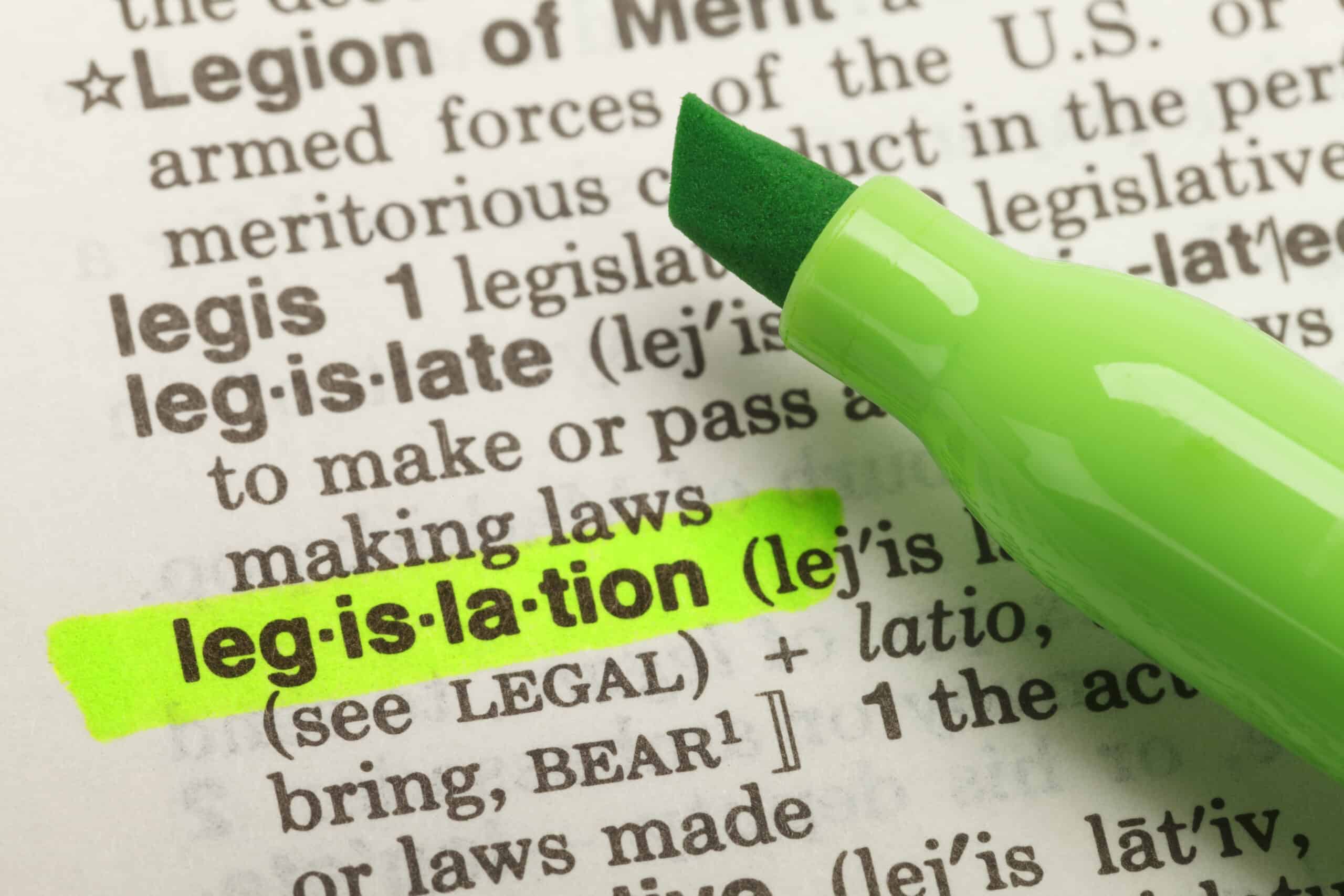
Video Captions Must Be A Key Component in Your 2017 Budget
Video Captions Must Be A Key Component in Your 2017 Budget
There are strict and enforceable laws in place to ensure quality and fair education for students with disabilities. These laws directly apply to ANY and ALL institutions that receive federal financial assistance.
Access to high quality education is one of the essential pillars of our democracy and to the well-being of our communities. This agreement ensures that those with disabilities will not be left behind – U.S. Attorney Carmen Ortiz
If your educational institution is not in compliance with accessibility laws, it is at risk of losing ALL federal financial assistance. The Office of Civil Rights has the jurisdiction to enforce accessibility compliance laws and to take action if these laws are violated.
There are over 48 million people in the United States, that is one in five, that are deaf/hard of hearing. Of these, 468,000 are deaf/hard of hearing college students. Among students with hearing loss, a staggering 70% drop out of college due to inadequate accessibility accommodations. In essence, colleges across the country are denying thousands of enthusiastic students a future by not providing accessible education material.
Specifically, compliance means that all education materials are accessible to all students. This is achieved through captioning and transcribing videos and designing course material that permit people with disabilities to access them. These requirements fall under laws that are specific to accessibility.

The laws that protect students with disabilities.
Title III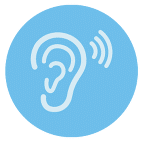
Title III of the Americans with Disabilities Act (ADA) prohibits discrimination on the basis of disability by public accommodations in the full and equal enjoyment of the goods, services, facilities, privileges, advantages, and accommodations of places of public accommodations. Title III of the ADA also requires public accommodations to take necessary steps to ensure individuals with disabilities are not excluded, denied services, segregated, or otherwise treated differently because of the absence of auxiliary aids and services, such as accurate captioning of audible material and labeling of visual material.
The Justice Department has long considered Title III and its implementing regulation to apply to the online services and communications of public accommodations (U.S. Dept. of Justice).
Section 504
Section 504 is a federal law designed to protect the rights of individuals with disabilities in programs and activities that receive Federal financial assistance from the U.S. Department of Education (ED). Section 504 provides:
No otherwise qualified individual with a disability in the United States . . . shall, solely by reason of her or his disability, be excluded from the participation in, be denied the benefits of, or be subjected to discrimination under any program or activity receiving Federal financial assistance . . . . – Section 504 of the Rehabilitation Act of 1973, as amended, 29 U.S.C. 794
FCC mandates on 99% accuracy.
On Feb 20, 2014 the FCC released a new ruling amending the quality for closed captioning on video programming. As noted by the committee, captioning is intended to “replicate the hearing listener’s aural experience”. The new ruling stated that captions must be 99% accurate to provide a full experiential auditory reality.

Who enforces these laws?
The Office of Civil Rights (OCR) has jurisdiction over matters of education accessibility. The OCR enforces five federal civil rights laws that prohibit discrimination on the basis of race, color, national origin, sex, disability and age in programs or activities that receive federal financial assistance from the Department of Education (ED).
What are the consequences if an institution is not compliant?
If an educational institute is not complying with the laws and providing an equal education experience for students with disabilities, the OCR will then step in. The OCR will first attempt to bring the institution into voluntary corrective action agreement. If OCR is unable to achieve voluntary compliance, the OCR will then: (1) Initiate administrative proceedings to terminate Department of Education financial assistance to the recipient (2) refer the case to the Department of Justice for judicial proceedings. Essentially, if an institution does not provide an equal education experience for ALL students, they are in danger of losing ALL federal financial assistance.
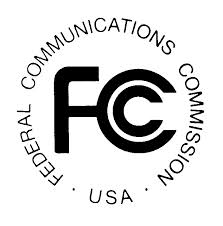
In addition, a person can file a private lawsuit before getting the OCR involved. In 2015, MIT and Harvard were sued by The National Association of the Deaf who were representing four students.
Christine Griffin, an attorney for the plaintiffs said, “Harvard and MIT systematically discriminate against people who are deaf and hard of hearing and perpetuate the isolation of people with disabilities that the ADA was meant to eliminate. Our hope is that this lawsuit will change not only Harvard’s and MIT’s practices, but set an example for other universities to follow. These lawsuits seek to reform conduct.”
Get compliance-ready.
Everyone has a right to a quality education. Video captions must be a key component in your 2017 budget. “Having no captions is equivalent to stating people with disabilities may not enter,” added Arlene Mayerson, of the Disability Rights Education and Defense Fund. Captioning is important for deaf/hard of hearing students to get a quality education equal to that received by those without disabilities.
The law is clear and while budget planning may not have caught up, the time to act now! Don’t wait for a lawsuit to land on your doorstep. cielo24 representative today to schedule a free trial!
